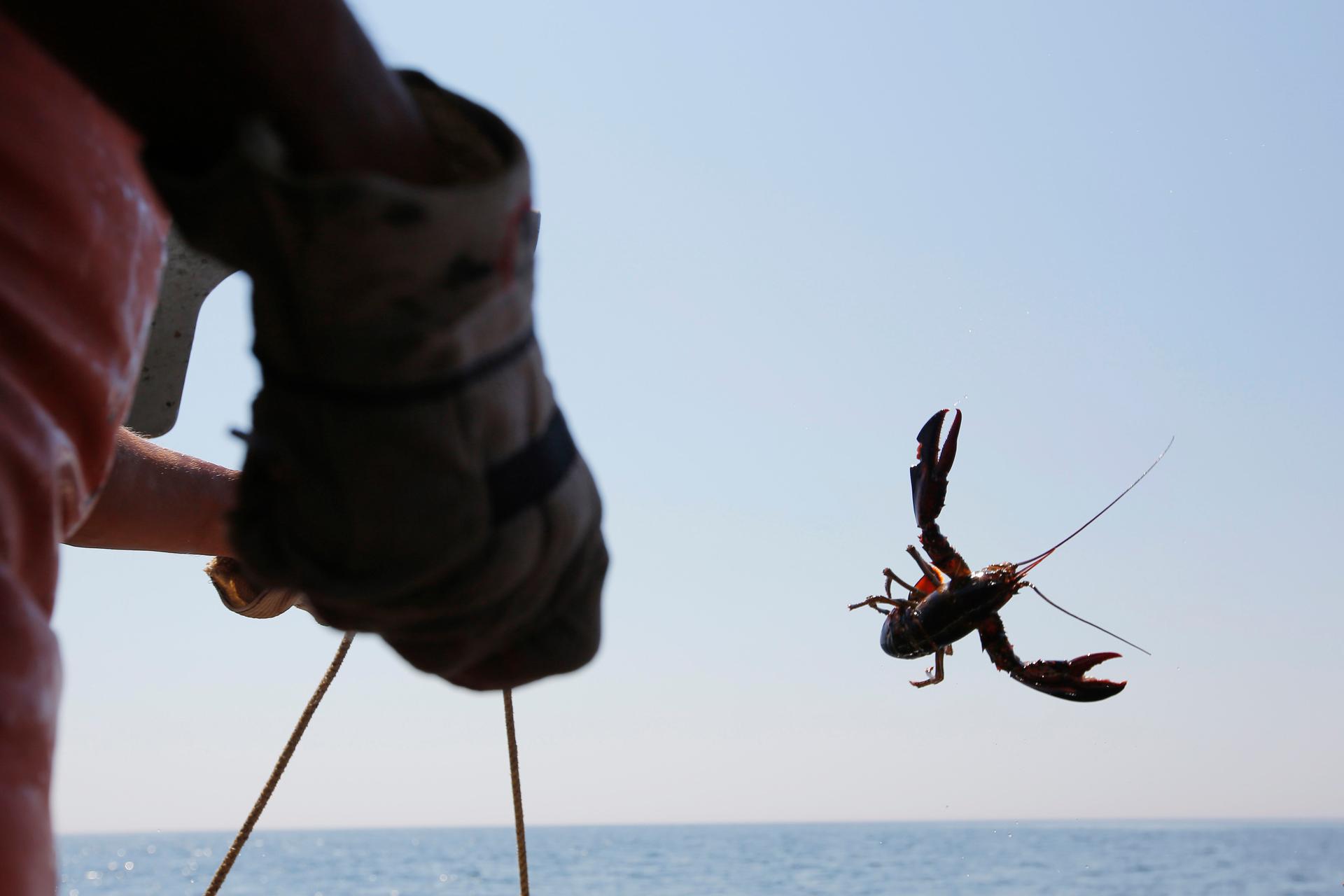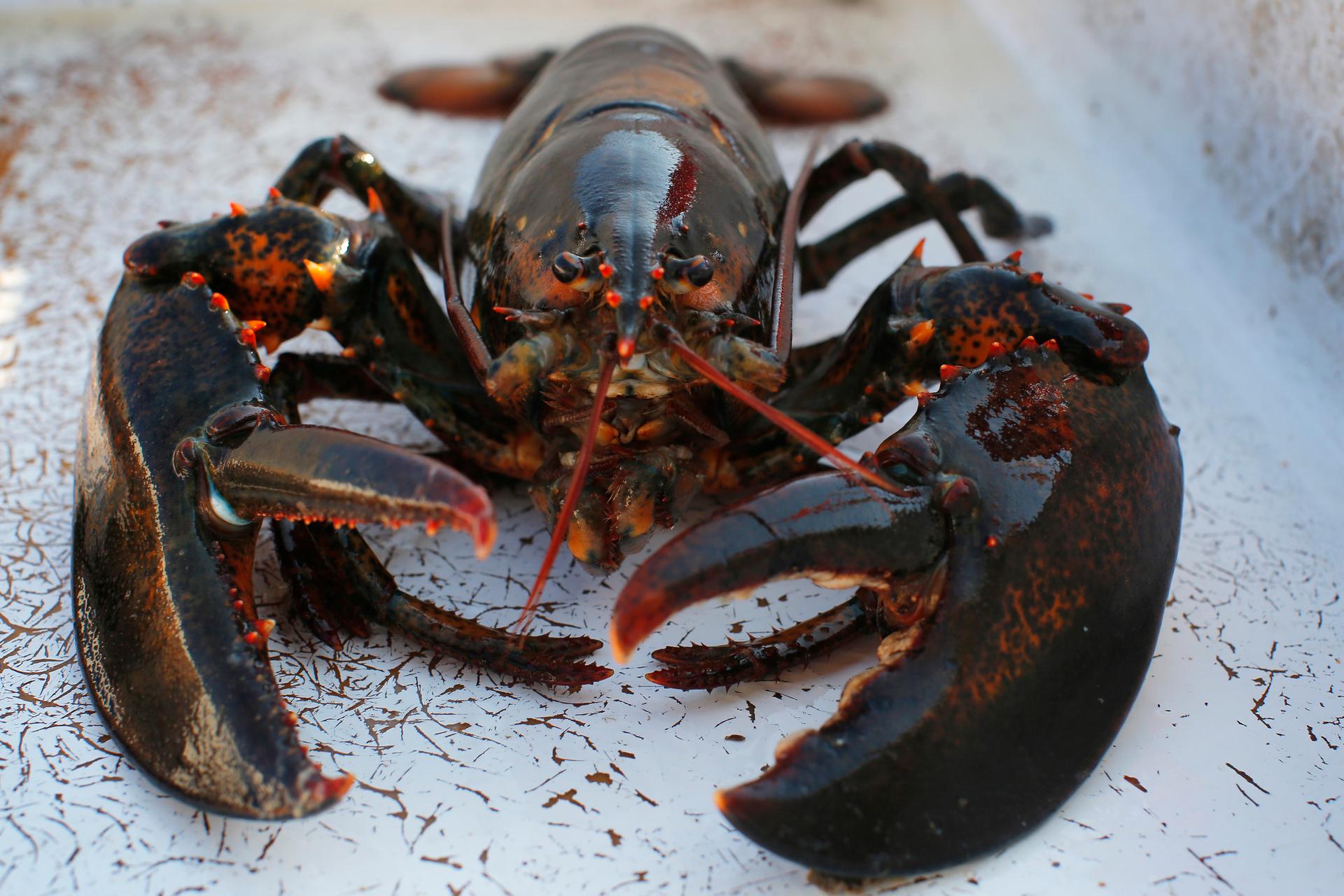A lobster sits in a holding bin before having its claws banded onboard the lobster boat "Wild Irish Rose" in the waters off Cape Elizabeth, Maine August 21, 2013. Sweden wants a blanket ban of live North American lobster.
If you ask the Swedes, there's been an underwater invasion happening for years. And they want to do something about it.
In the past eight years, Sweden has found more than 30 North American lobsters in the waters off its coast. One of the female lobsters found was carrying eggs fertilized by a European lobster. The country’s environment ministry is worried that the lobsters could take over European stock by interbreeding, and possibly introduce disease in the the native lobster population. That's why this month they asked the European Union to ban the import of live North American lobsters.
The Americans are fighting back.
On Monday, Maine's congressional delegation reached out to multiple members of the Obama administration — including Secretary of State John Kerry — asking them to protest the proposed change. They say Sweden is overreacting.
"Since only a small number of Maine lobsters have been found in foreign waters, we believe regulators should take a more finely tuned approach before calling this an 'invasion,'" senators Susan Collins and Angus King and representatives Chellie Pingree and Bruce Poliquin wrote in a letter to Secretary of State John Kerry, US Trade Representative Michael Froman and Kathryn Sullivan from the National Oceanic and Atmospheric Administration.
The Maine delegation says lobsters are the state's biggest export to Europe, valued at about $196 million.

Chris Wrisemo — the owner of ABC Food, one of the largest seafood importers in Sweden — doesn't support the proposed ban.
"I think that it is very much too drastic," he says. "I get a little frustrated when I talk about it or when I think about it. I think it's so very stupid."
Wrisemo has different ideas on how to prevent lobsters from making their way into European waters, including establishing a single fixed holding facility for imported lobsters and banning live lobsters from being sold directly to customers at markets.
"The ban wouldn't be good for anyone," he says.
Releasing live North American lobsters into Swedish waters is already illegal, but Wrisemo believes some may have escaped due to mishandling from wholesalers who may have temporarily stored the lobsters in nets or cages in the sea.
Some American scientists are questioning the ban as well. Robert Bayer, the executive director of the Lobster Institute at the University of Maine, told the CBC he doesn't buy the claim that the lobsters — or specifically a lobster's shell — could be spreading disease.
"It is not contagious," he told the CBC. "It is so non-contagious that we don't have a good model to study it and we have been looking at the appearance of shell disease for well over 20 years in Canada and the U.S."
As for Wrisemo, his opinion of the ban is all business. He doesn't even really eat much lobster.
"You know we talk lobsters, work with lobsters. It's just that we also like Swedish meatballs," he says, laughing.
If the Swedes get their way, there might be fewer North American lobsters on the menu.
